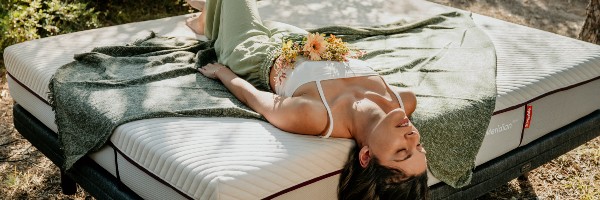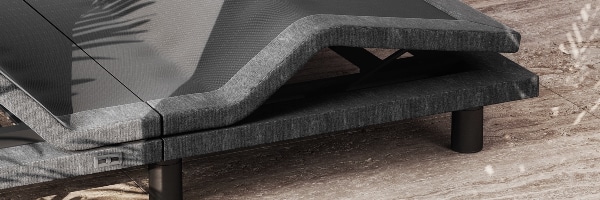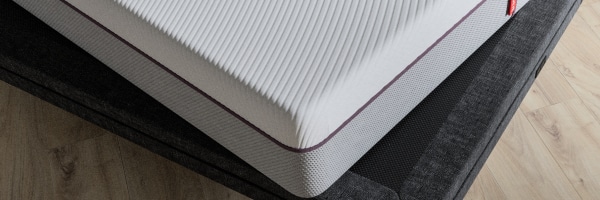As we age, our sleep patterns inevitably change. Elderly individuals often face unique challenges that can affect their rest, from disrupted sleep cycles to increased sensitivity to discomfort. Addressing these concerns is vital for ensuring quality sleep, which is essential for overall health and well-being. Marble’s innovative sleep solutions are specifically designed to solve these problems, offering unparalleled comfort and support.
Understanding Elderly Sleep Challenges
Table of Contents
The elderly often experience more time spent in lighter stages of sleep and less in the deep, restorative phases. This, coupled with physical discomforts and increased wakefulness during the night, can significantly impact their quality of life. Elderly sleep problems often stem from various factors, including health conditions and the natural ageing process, making tailored sleep solutions critical for this demographic.
HexiGrid Advanced™: A Foundation of Support and Comfort
Our HexiGrid™ technology stands at the forefront of our efforts to address elderly sleep problems in Singapore. Drawing inspiration from the natural engineering of European honeybees, the HexiGrid™ layer offers an unmatched combination of durability, support, and pressure relief. This technology enables a gentle cradling effect for sensitive areas like shoulders and hips, reducing aches and enhancing the feeling of weightlessness. Moreover, its ability to adapt instantly to movement and maintain a comfortable temperature throughout the night addresses key concerns of ageing sleepers, ensuring a restorative sleep experience without the discomfort of trapped body heat.
Surface Weave™: Inspired by Nature for Cooling Comfort
Refining Sleep Environments for Elderly Comfort
Other Tips for Creating Ageing-Friendly Sleep Environments

- Optimise Bedroom Conditions: Ensure the bedroom is quiet, dark, and cool. Use blackout curtains, earplugs, or white noise machines if necessary to create an environment conducive to sleep.
- Minimise Nighttime Disruptions: Place a nightlight in the hallway or bathroom to safely guide the way during nighttime visits. Consider a bedside commode if the bathroom is too far away, to minimise the risk of falls.
- Encourage Evening Relaxation: Establish a pre-sleep routine that promotes relaxation, such as reading, listening to soft music, or practising gentle yoga or meditation to help ease the transition to sleep.
- Limit Evening Fluids and Caffeine: To reduce the likelihood of nighttime awakenings for bathroom trips, limit fluid intake in the evening. Also, avoid caffeine and heavy meals close to bedtime, as they can disrupt sleep.
- Ensure Accessibility: Keep essential items within easy reach of the bed, such as glasses, water, a phone, and any needed medications. This minimises the need to get up during the night.
- Promote Physical Activity: Regular, gentle exercise during the day can help improve sleep quality at night. However, avoid vigorous activity close to bedtime as it can be stimulating.
- Review Medications: Some medications can impact sleep. Have a healthcare professional review all medications to identify any that might contribute to sleep issues.
- Consider Natural Sleep Aids: For some, natural sleep aids like chamomile tea or lavender scents can be helpful. However, always consult with a healthcare provider before trying new supplements or herbs.











